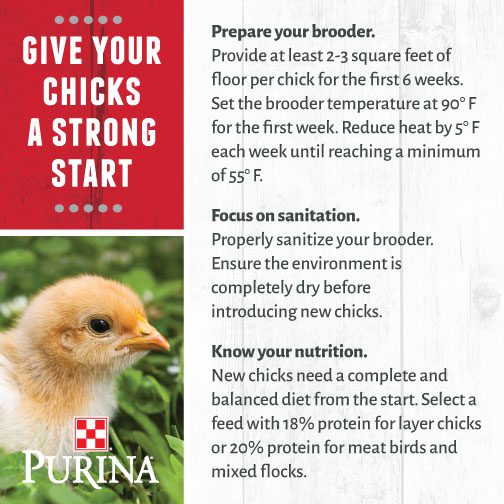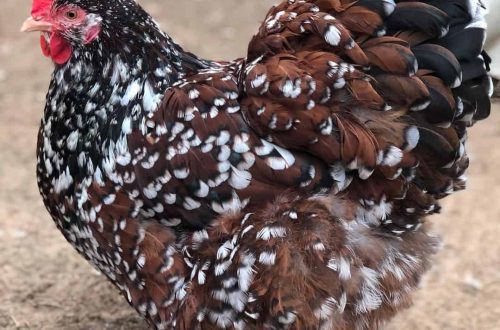
Necessary conditions for rearing and keeping laying hens
Many homeowners are engaged in the cultivation and breeding of egg-laying hens (laying hens). As soon as they grow up, this occupation begins to be profitable. In addition, there will always be organic chicken eggs on the table. Raising chickens requires certain knowledge and skills. Only by observing all the necessary conditions for keeping and feeding, you can achieve a good result.
Contents
Chick life cycles
Typically, day-old chicks are purchased for rearing from bird markets or hatcheries. When buying, be sure to make sure that the breed is egg-bearing. The most popular breeds are considered minors, white Russian chickens, partridge and white leghorns.
There are three periods in the life of chickens, which are very important for their subsequent development:
- first eight weeks. At this time, the chicken’s internal organs, immune, enzyme and cardiovascular systems are intensively developing, as well as the skeleton and plumage are being formed.
- Eight to thirteen weeks. This period is characterized by an increase in adipose tissue, tendons and ligaments begin to develop.
- Thirteen to twenty weeks of life. At this time, the whole body begins to actively develop, including the reproductive system. The body is completely rebuilt.
All periods are important, but special attention should be paid to chickens in the first eight weeks of their life. It is necessary to correctly set the temperature and lighting conditions, the food should consist of dry compound feed.
Maintenance and rearing of chickens under the age of 1 month
Raising chickens is quite difficult., but it is more profitable than buying an adult laying hen, which is very expensive. It is easier to feed a day old chick to adulthood. In addition, if the babies grow all the time in the same environment, they will quickly get used to the chicken coop and will be better rushed than a purchased adult who has fallen into a new habitat. When buying, you should choose active and clean chickens, then the chickens will grow up strong and healthy.
The room for keeping and rearing chicks should be clean, bright, dry and draft-free. At home, chickens are raised on a bedding that needs to be changed only when buying new chickens. Bedding can be made from shavings, straw, sawdust, without mold. As it gets dirty, the top layer is removed and a new one is added.
It is necessary to keep chickens in comfortable and favorable conditions for them:
- The air temperature in the room in which the chicks are located should be 28 degrees for the first two weeks. However, you should watch them carefully. If the chicks began to huddle in large groups or sit in one place, then they are cold, and the temperature should be increased. If they sit alone, behave sluggishly, they are hot, and the temperature needs to be lowered. At the optimum temperature in the room, the kids are active, move a lot and squeak.
- For the first three days, chicks should be fed boiled eggs, corn mixed with green onions, lettuce or dill. This will provide the growing body with the necessary vitamins. A little later, you can give them cereals or grain waste.
- They should always have a feeder with clean boiled water.
- The room in which the chicks are kept should not see through. Babies can get sick and die. It should also be well lit, and the light should be almost always on.
What to feed laying hens
After 3-4 months, mature chickens begin to rush. Hens become laying hens, so the diet for them should be special. They need to be given a balanced diet containing the nutrients and macronutrients needed for proper development of the laying hen. Since calcium is constantly taken from her body, from which the egg shell is formed, the feed must be rich in this element.
With a lack of calcium, the shell becomes soft. In this case, the chicken must be fed with Foros or Rotstar. The diet should include a mixture of grains of wheat, barley, nit, as well as fishmeal, cake from sunflower, soy and rapeseed, phosphates. Also, fodder chalk should be added to improve the eggshell.
Diseases
If you raise chickens in favorable conditions for them, then the occurrence of diseases is minimized. Purchased babies should be vaccinated from various diseases. Maintaining sanitary conditions in the room with chickens helps to prevent diseases. It should always be clean and the bedding dry.
Laying hens can overtake the following diseases:
- Coccidiosis. A very common disease in young chickens, especially if they are under 20 days old. But two-month-old babies can also get sick. This disease is characterized by a complete lack of appetite, lethargy, the wings of the chicks fall, and they literally fall down. Diarrhea opens. In order to prevent babies, furazolidol or norsulfazol is added to the feed. For an already sick bird, the solution is poured directly into the mouth. To do this, open the beak with tweezers and pour the drug with a pipette. The pain should go away in two days.
- Pasteurellosis. The disease is typical for adults. Sick chickens tolerate it well, but almost all adult birds die. The symptoms of this disease are the lethargy of chickens, they sit in one place, foam appears from the beak. Treatment is with antibiotics administered intramuscularly. Recovery occurs in 50% of cases.
- Helminthiasis. These worms are found in the intestines and other organs of the bird. Sick individuals practically stop eating, become lethargic, egg production decreases. In order to prevent chickens, they are soldered with drontal or junior.
To ensure that chickens never get sick, they must be fed mixtures with vitamin supplements, and the feed must contain greens.
Thus, in order for healthy laying hens to grow from chickens, it is necessary follow certain rules: provide comfortable living conditions, fully feed them, take measures to prevent various diseases. In this case, the productivity of chickens will be very high.





